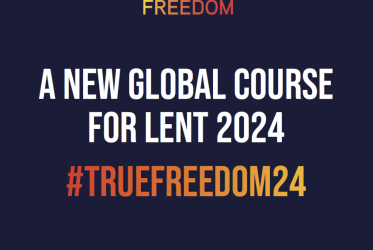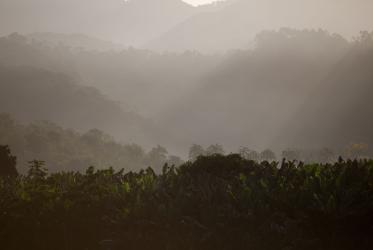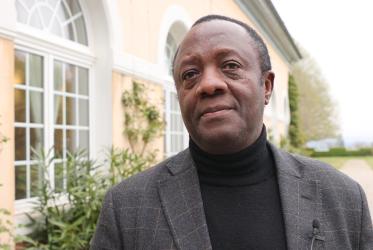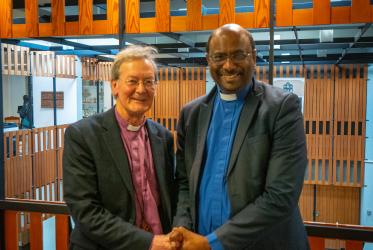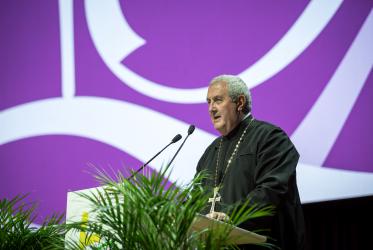Freedom from Debt = Freedom from Domination
On the eve of the new millennium, we are witnessing the rapid growth of Jubilee 2000 structures and debt coalitions across the region to tackle the existing problems we face and to move to a new millennium of hope and change.
The vast majority of the people of sub-Saharan Africa live in pervasive poverty. In Southern Africa tens of millions of people are hungry, homeless, jobless, formally uneducated and die from preventable diseases. Yet Southern Africa is not intrinsically poor. Indeed, it is a region rich in natural and human resources. Debt slavery, the same system of debt bondage that excludes four-fifths of the world's population from economic and social development, is a central part of this nightmare.
Southern Africa is shackled by debt owed to the same forces which initiated, enforced, condoned and sustained slavery and colonialism. Today this debt is both a manifestation and an instrument of the unjust international economic order in which the North dominates the South and the elites in our countries are willing accomplices and beneficiaries. Countries in Southern Africa pay as much as 40% of their export earnings to service the debt. This outflow of resources in debt repayments along with profit remittances have led to the most wretched of human conditions.
Not only is the debt burden choking the life of Southern Africa's human potential, indebted nations have also been pressurised to agree to crippling conditionalities to get loans to repay the debt in a deepening spiral of indebtedness. The Structural Adjustment Programmes (SAPs) have caused increasing levels of unemployment, reduced government services, higher prices of food and other basic commodities and intensified poverty. Through the imposition of export-led growth, financial and trade liberalization, fiscal austerity, privatization and deregulation, our economies remain sources of cheap raw materials and pools of cheap labour for the interests of the industrialized North. Through SAPs our governments have become more accountable to the elites of the North rather than to their own people. We have been denied the right to be active participants in the decision making process of our own development. In this sense we see how debt has come to be an instrument of control and domination.
The domination of the North over the South has led to conditions which have spawned wars and conflicts in our region that have further exacerbated the levels of poverty, human suffering - and debt bondage.
The legacy of apartheid compounds this situation. Southern Africa, as a region, suffers the effects of apartheid-caused debt. Apartheid-sponsored wars and economic destabilization forced nations to borrow billions of dollars because of the international communities' failure to enforce the international law violated by apartheid.
Over two million people have been killed in Southern Africa in apartheid-related wars, millions more have been maimed and thousands of schools, clinics, bridges and roads have been destroyed. Today, Southern African nations are paying millions of dollars annually to service apartheid-caused debt to creditors who were in the main supporters of apartheid. The total cost of apartheid-caused destabilization in Southern Africa is far greater than the actual apartheid-caused debts. The former estimated cost exceeds US$115-billion while apartheid-caused debt is some $27-billion.
Wars have now escalated to the point of forcing states of the region to borrow even more and thereby further deepen our dependence on militarized politics and economic management.
Under these circumstances the debt of Southern Africa is illegitimate and immoral. Yet there is a debt which we do recognize - a moral debt. This is the debt that our governments, the governments of the G7/8, multilaterals and international commercial banks owe us for unbuilt and broken down schools, for women and girls who continue to bear the burden of poverty and for the jobs, homes, clean water and all the fundamental human rights we do not have.
We thus demand:
- the unconditional, immediate and total cancellation of the debt;
- the immediate termination of the conditions attached to all the internationally designed debt relief mechanisms tying this to further economic adjustment; and
- the scrapping of the HIPC initiative.
The only conditions we recognize are those that are developed by the popular and representative civil society organizations. We believe that the results of debt cancellation can only benefit our people if it is accompanied by deep-going processes of democratisation, the upholding of human rights - including workers rights - transparency, accountability and the provision of basic social services.
We reiterate the call for reparations in the 1993 Abuja Declaration embracing the totality of all the quantifiable and unquantifiable costs that have been incurred. Reparations must compensate for economic and social damage incurred by our people, to finance the rebuilding of our own infrastructure and society and to restore our dignity. We believe reparations are long overdue as our initiative to regain control over our destiny and to ensure that the African holocaust will never occur again. We call for the building of a new democratic world order upon the eradication of the present order that continues to bond us to debt through the ties of free trade, exploitative and extractive movement of Transnational corporate investment, volatile and speculative hot money flows; all within an ideology concocted by a tiny minority based in the USA, the so called 'Washington Consensus'.
We see the gathering of Jubilee 2000 coalitions and other popular forces in Cologne in June as an important step in the march towards the realisation of the objectives of our unifying movements. We demand that the G7 and Bretton Woods Institutions do justice to us but are under no illusion that this will happen without an intensification of popular pressure. That is why we deem it necessary to galvanise our forces in building up momentum for a strong South-South coalition and our own agenda for total liberation at the South-South Summit.
We affirm the Accra, Rome and Tegucigalpa declarations and the World Council of Churches Harare "statement on debt" and welcome the forthcoming Asia-Pacific Jubilee summit as part of our South-South Jubilee process. We call on our church and other civil society allies in the North to support our struggle and the process that has led to this and previous declarations. In so doing they would be transforming themselves, as we desire, into vehicles of genuine solidarity within a Jubilee 2000 global movement led by the South for a new world in the new millennium.
On our part we shall continue to build Jubilee 2000 coalitions that will empower the broad masses of people to respond effectively to all the challenges posed by the debt crisis and the Jubilee clarion for a new millennium. We mean in this regard people-to-people campaigning to build our own power, capacity and "globalization of solidarity" networking in order to ensure the achievement of our goals. We are building our campaign in such a way that will secure debt cancellation by all possible means, including exerting pressure upon all those concerned or by the collective mass action of unified South debt repudiation if necessary.
We are calling upon everybody to act accordingly and thus contribute towards realising the above objectives. Most importantly, let us boost each other's confidence in our collective ability to achieve these goals through principled unity, South-to South, and South-to-North.
Finally, we commit ourselves to self-determination in working for debt cancellation within a broader concept of Jubilee, including assertion of our sovereignty from Northern domination and transformation towards an alternative global economic system.
This declaration was issued by delegates to the Southern African Debt Summit in Johannesburg, 21 March 1999: Jubilee 2000 Southern African Coalitions. Affirmed by delegates from: Angola, Lesotho, Malawi, Mozambique, South Africa, Swaziland, Tanzania, Uganda, Zambia, Zimbabwe, Jubilee 2000 Afrika and Jubilee 2000 Coalitions from Latin America and Philippines.
